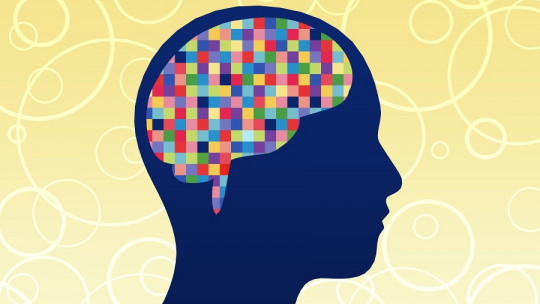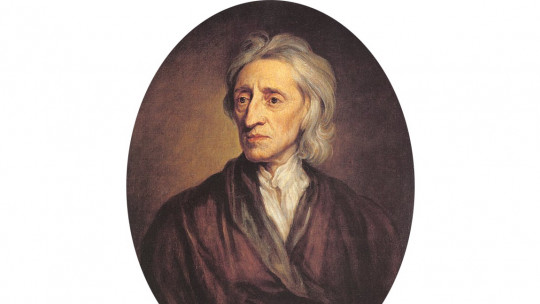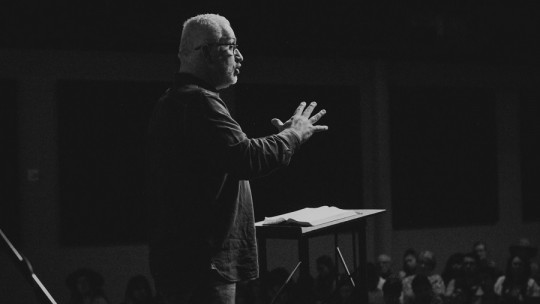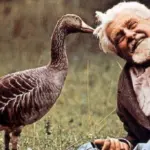The concept of the innate is theoretically established in contrast to that of the acquired forming the space in which both create a complementary duality on which the human being is erected.
Understanding the importance of what is innate and what is acquired allows us to understand the different mechanisms that underlie the expression of one’s own individuality and the influences that can act on it during development.
The meaning of the word ‘innate’
The word innate comes from the Latin word innatus. At an etymological level it can be divided into two constituent elements: the prefix in, which refers to a reality inherent or located inside; and the suffix natus, whose meaning is “born.”
Therefore, it is understood as innate any expression of a living being that is part of its potential baggage from the moment of birth without a direct learning experience with the natural environment having mediated it.
Thus, in general, it is understood that innate is everything that an individual expresses without having to have learned it through personal experiences with the environment, solely due to the fact of having genetic baggage that shapes his biology and the corresponding substrate. emotional or behavioral that could depend on it. For Psychology, it is a nuclear concept in its objective of understanding the mind and behavior of human beings.
Three different perspectives have been postulated to explain nativism throughout the historical evolution of the construct. All of them continue to be important, since it is a matter subject to debate today, with evidence for and against in all cases. Below we review the basic aspects of all these approaches.
1. Extreme nativism or modularity
From this perspective, the mind is understood as a relatively organized set of modules specialized in specific domains or skills, which are sensitive to certain types of information.
When it is in the environment, a pre-programmed form of processing is launched, automatic and devoid of the individual’s will. It is for this reason that, in the result of these learning, innateness acquires special relevance.
The best known example is that of language. Different authors have defended the existence of a universal grammar, that is, a series of rules common to every human being that allow the acquisition of verbal and symbolic codes as they interact with others in their social environment. Some examples of theorists who have postulated explanatory models from this perspective are Chomsky or Fodor.
2. Moderate nativism
In this position are those authors who share a modular vision for the structure of the mind but who conceive its innate potential as limited, so that it will be the individual, through his or her exploratory behavior, who is responsible for complementing and enriching it with the nuance of your individual experience. There would, therefore, be a basic prior knowledge that would require contact with the environment to provide it with adaptive properties.
This prism would integrate the innate with the acquired in a comprehensive unit, giving each of these realities an important role in the acquisition of the knowledge and skills that are specific to us as a species, as well as in the construction of our way of being in the world.
3. Representational innatism
This perspective assumes the laxest possible view on the question of nativism, although it does not eliminate it completely from the equation. Conserving certain innate capacities, the most important weight of individuality would fall on the ability to explore and explain the world through the formulation of symbolic representations that depend on experience.
This way of understanding nativism defends the capacity of individuals to generate explanatory theories as they experience different situations, in such a way that a final result would not be achieved, but rather a constructive process would be gone through that would last throughout life. From this perspective there would be no prior programming or sequence of innate automatisms but it would be the individual who would stand as the sole architect of himself.
Biology and Psychology versus innatism
Biology and Psychology have built, throughout their respective histories as scientific disciplines, a set of theoretical models that have often contemplated innate aspects from an ethological and evolutionary perspective. This scientific quest connects with some of the main questions that philosophers and thinkers have previously dedicated their time to, trying to scrutinize the very nature of knowledge and identity.
Innatism and Biology
Biology plays a key role in understanding innateness, as it alludes to the concept of design. In this context, natural selection would be responsible for perpetuating the presence of certain traits through survival screening, in such a way that the individuals best suited to deal with environmental threats could transmit their particularities from generation to generation, forming a baggage. evolutionary sculpted by sexual reproduction and the passing of time.
This background would make it possible to provide the successive descendants of any species with a series of attributes that would improve their chances of survival, without having to face the rigors of a real danger. The preparation theory, which describes the way in which people tend to develop phobias more quickly towards potentially life-threatening stimuli, would be consistent with innately induced facilitation.
Beyond the evolutionary perspective, innateness has also been seen as a matter dependent on genetics and inheritance. Thus, the presence or absence of a trait would be determined by the sequence of genes that each individual could present in the specific configuration of their DNA. However, there is evidence contrary to this theoretical postulate, since phenotypic expression requires the participation of epigenetic factors (environmental, eg).
Since the biological and the psychological form an inseparable reality, due to the organic substrate that underlies thoughts and behaviors, a certain degree of influence of genetic adaptations on them would be foreseeable.
Innatism and Psychology
The debate between innate and acquired arose naturally as a result of one of the first questions that human beings asked themselves. Philosophy, represented by the rationalists and the empiricists, raised the question a long time ago without it being able to be resolved in favor of any of them. Today the concept of innateness is especially championed by theorists of Evolutionary Psychology coexisting in a certain harmony with what was acquired.
Evolutionary Psychology brings together in its study the different forces that build the particular way in which a person expresses and feels. Although intrinsic elements of the organism that contribute to its maturation are recognized, these are complemented by equally influential forces, such as the social and natural environment. The person is the product therefore of the intersection between the organic and the cultural, between phylogeny and ontogeny, between what is acquired and what is learned.
From Psychology it is understood that every cognitive mechanism has an adaptive function, in such a way that its first purpose was to provide an advantage to the animal that wielded it in contrast to the one that did not, in obvious parallel with what we know about organic qualities. The fact that a group of living beings adopted common strategies to solve a problem, as occurred in the collective hunting of predators, is an example of this.
Human reality: a question of confluences
The human being is a biopsychosocial reality of extreme complexity, which implies the existence of multiple forces that act on him during the process of gestation of his individuality. Our central nervous system developed over millennia in a physical and social context full of threats to life, different from what currently exists for the majority of people in the world, and this has meant a phylogenetic imprint imprinted on our most primitive brain.
Measuring the scope of this imprint is not at all easy, but it involves a series of mechanisms that influence multiple basic processes, such as emotional and perceptual processes. Therefore, we cannot avoid the relevance of innateness in the range of our thoughts and emotions, since the substrate on which they rest was formed through the vicissitudes that homo sapiens had to live through for countless generations.
The human being is not, therefore, a tabula rasa. He does not come into the world devoid of tools with which to solve the first puzzles that existence will put before him. Communication, perceptual and motor functions already have a nucleus of organization in the child’s mind; needing only the spur of experience to build a sophisticated body of skills that will contribute to his ability to live a full life.
Without a doubt, the human being is also an animal endowed with extraordinary creative and symbolic capacities, which allow him to greatly transcend the yoke of innate conditioning to build himself from personal experience. As he is buffeted by her evolutionary history and his life story, he continues to unravel the enormous mystery of his own mind and the space it occupies in nature.









